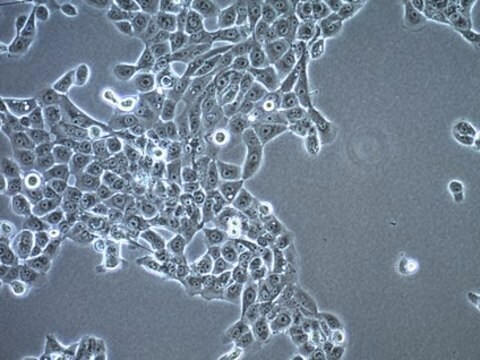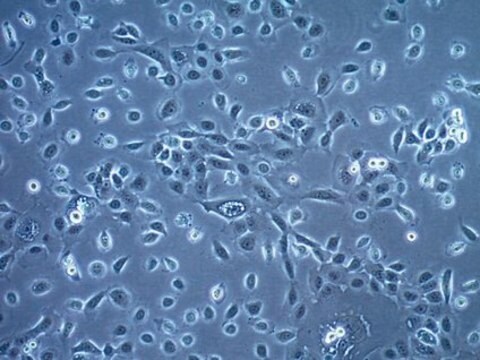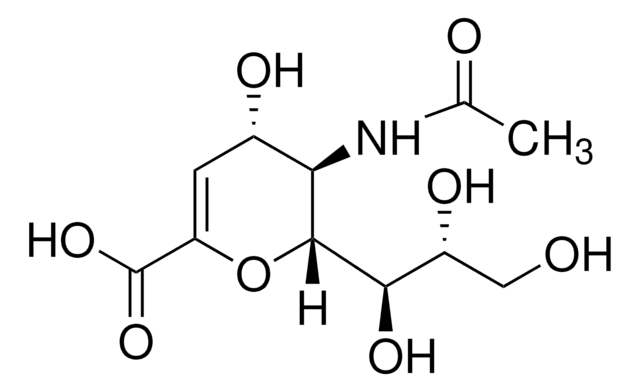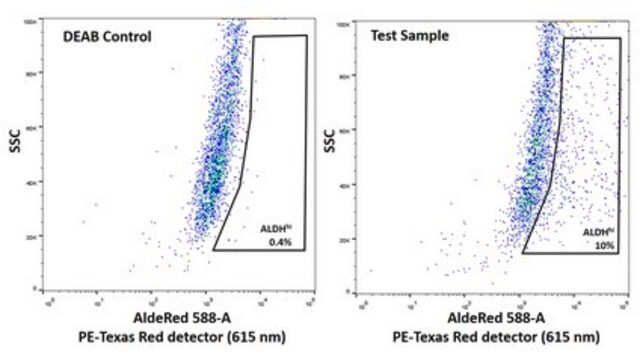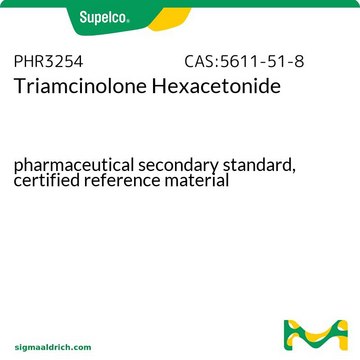SCC287
SQ-20B Human Squamous Cell Carcinoma Cell Line
SQ-20B human squamous cell carcinoma cell line is a widely used model for radiation-resistant HNSCC.
Sign Into View Organizational & Contract Pricing
All Photos(1)
About This Item
UNSPSC Code:
41106514
NACRES:
NA.81
Recommended Products
application(s)
cell analysis
General description
Squamous cell carcinoma of the head and neck (HNSCC) represents 90% of all head and neck cancers (1). HNSCC is the 9th-most common cancer worldwide and is characterized by a high rate of recurrence after therapy, with a median 5-year survival range of 40-50% (1). Radiation resistance can arise when cells undergo sublethal damage during x-ray treatment, giving rise refractory post-treatment tumors with poor prognosis (2). Cellular models of HNSCC that demonstrate radiation-resistance are critical for elucidating factor associated with radio-resistance and advancing effective therapies.
The SQ-20B human laryngeal squamous cell carcinoma cell line is a widely used model for radiation-resistant HNSCC. SQ-20B cells were derived from a laryngeal tumor (tumor stage 2 node stage 0) that presented following primary radiation therapy (2). The SQ-20B cell line harbors the c-raf proto-oncogene (3) associated with tumorigenicity and radio-resistance (4). SQ-20B cells have been characterized by expression of the SCC marker p63 (p40) (5). The characteristics of the SQ-20B cell line demonstrate its utility as a model for cellular mechanisms that give rise to radiation resistance.
<bold>Source:</bold>
The SQ-20B cell line was derived from a tumor on the larynx of a patient undergoing radiation therapy2 and harbors a male karyotype (3).
Research Category:
Cancer
The SQ-20B human laryngeal squamous cell carcinoma cell line is a widely used model for radiation-resistant HNSCC. SQ-20B cells were derived from a laryngeal tumor (tumor stage 2 node stage 0) that presented following primary radiation therapy (2). The SQ-20B cell line harbors the c-raf proto-oncogene (3) associated with tumorigenicity and radio-resistance (4). SQ-20B cells have been characterized by expression of the SCC marker p63 (p40) (5). The characteristics of the SQ-20B cell line demonstrate its utility as a model for cellular mechanisms that give rise to radiation resistance.
<bold>Source:</bold>
The SQ-20B cell line was derived from a tumor on the larynx of a patient undergoing radiation therapy2 and harbors a male karyotype (3).
Research Category:
Cancer
Cell Line Origin
Human, Cancer Cells
Packaging
≥1X106 cells/vial
Storage and Stability
Store in liquid nitrogen. The cells can be cultured for at least 10 passages after initial thawing without significantly affecting the cell marker expression and functionality.
Other Notes
This product is intended for sale and sold solely to academic institutions for internal academic research use per the terms of the “Academic Use Agreement” as detailed in the product documentation. For information regarding any other use, please contact licensing@emdmillipore.com.
Disclaimer
RESEARCH USE ONLY. This product is regulated in France when intended to be used for scientific purposes, including for import and export activities (Article L 1211-1 paragraph 2 of the Public Health Code). The purchaser (i.e. enduser) is required to obtain an import authorization from the France Ministry of Research referred in the Article L1245-5-1 II. of Public Health Code. By ordering this product, you are confirming that you have obtained the proper import authorization.
Unless otherwise stated in our catalog or other company documentation accompanying the product(s), our products are intended for research use only and are not to be used for any other purpose, which includes but is not limited to, unauthorized commercial uses, in vitro diagnostic uses, ex vivo or in vivo therapeutic uses or any type of consumption or application to humans or animals.
Storage Class
10 - Combustible liquids
wgk_germany
WGK 1
flash_point_f
Not applicable
flash_point_c
Not applicable
Certificates of Analysis (COA)
Search for Certificates of Analysis (COA) by entering the products Lot/Batch Number. Lot and Batch Numbers can be found on a product’s label following the words ‘Lot’ or ‘Batch’.
Already Own This Product?
Find documentation for the products that you have recently purchased in the Document Library.
Our team of scientists has experience in all areas of research including Life Science, Material Science, Chemical Synthesis, Chromatography, Analytical and many others.
Contact Technical Service